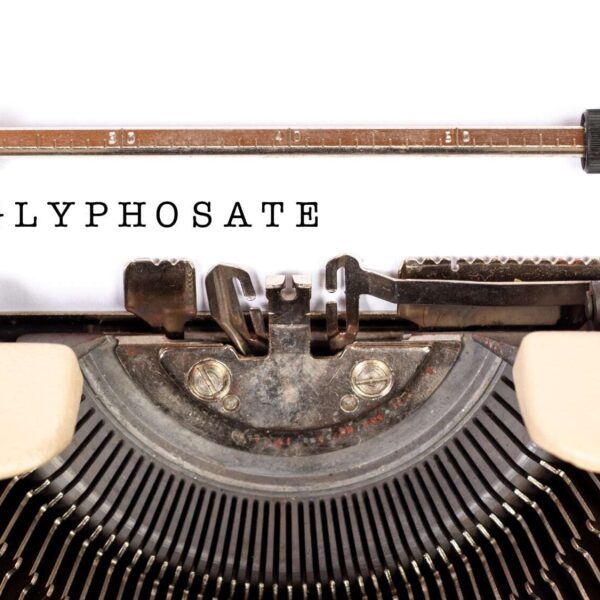
Glyphosate vs access to environmental information: 0 - 1
On Monday, 13 May 2019, a jury in Oakland, near San Francisco, awarded $ 2 billion to the Pilliod couple, both suffering from non-Hodgkin's lymphoma, as "punitive" damages intended to punish Monsanto.
The jury found that exposure to Roundup caused the Pilliods’ cancer and that Monsanto had failed in its obligation to prevent this serious health hazard. Most importantly, the jury also acknowledged that Monsanto acted with malice, oppressively or fraudulently and should be punished for its behaviour. Information on the dangerousness of the product is the basis of this conviction.
Bayer, the buyer of the Monsanto company, intends to appeal while continuing to assert that Roundup and its active ingredient, glyphosate, are safe for human health. The German chemical company insists that, since its market launch in the mid-1970s, no regulator in the world has concluded that glyphosate is dangerous and puts forward "800 rigorous studies" on its effects.
However, this rhetoric seems to fall on deaf ears since, at the end of April, Bayer was facing 13,400 lawsuits related to glyphosate in the United States alone.
On the other side of the Atlantic, still related to glyphosate, the General Court of the European Union on 7 March 2019, ruled in principle that it is setting aside the decisions of EFSA, the European Food Safety Authority, denying public access to toxicity and carcinogenicity studies on the active ingredient glyphosate.
In fact, EFSA refused access in particular on the grounds that access to parts of these studies was not necessary to verify the scientific risk assessment carried out in accordance with the regulation on the bringing to the market of plant protection products.
The applicants then brought an action before the General Court at the Court of Justice of the European Union to have the decisions of refusal set aside.
The General Court first of all reminds us that the presumption that the disclosure of information "relating to emissions into the environment", with the exception of those relating to investigations, is deemed to be of greater public interest than the interest arising from the protection of the commercial interests of a particular natural person or legal entity, so that the protection of those commercial interests cannot be opposed to the disclosure of such information. This implies that an institution of the European Union, when receiving a request for access to a document, cannot justify its refusal to disclose it on the basis of the exception relating to the protection of the commercial interests of a particular natural person or legal entity, where the information contained in that document constitutes information "relating to emissions into the environment".
Next, the General Court examines the nature of the information contained in the studies requested to determine whether those studies constitute information "relating to emissions into the environment" within the meaning of the Aarhus Regulation.
The General Court considers that an active ingredient contained in plant protection products, such as glyphosate, is, in the context of its normal use, intended to be released into the environment because of its very function and therefore its foreseeable emissions cannot be considered as purely hypothetical. In any case, glyphosate emissions cannot be qualified as only predictable emissions. In fact, the requested studies were part of the case file for renewal of the approval of the active ingredient glyphosate.
In that regard, the General Court notes that glyphosate was registered as an active ingredient as of 1 July 2002. Since that date, glyphosate has been approved in the Member States and has actually been used in plant protection products. Glyphosate is one of the most commonly used herbicides in the European Union. The emissions of glyphosate into the environment are therefore real. This active ingredient is in particular present as residue in plants, water and food. Therefore, the requested studies are studies aimed to establish the carcinogenicity or toxicity of an active ingredient that is actually present in the environment.
The General Court concludes that EFSA cannot uphold that the requested studies do not relate to actual emissions or the effects of actual emissions.
As regards to EFSA's argument that a link with emissions into the environment would not be sufficient for these studies to be covered by the Aarhus Regulation, the General Court notes that it follows from case-law of the European Court of Justice that the concept of "information relating to emissions into the environment", within the meaning of the Aarhus Regulation, is not limited to information allowing the assessment of emissions as such but also includes information on the impact of these emissions.
Therefore, the public must have access not only to information on emissions as such, but also to information on the more or less long-term consequences of these emissions on the state of the environment, such as the effects of such emissions on non-target organisms. In fact, the public interest in accessing information about emissions into the environment is precisely to know not only what is, or will be in a predictable manner, when released into the environment, but also to understand how the environment is likely to be affected by the emissions in question.
Associated areas of specialisation: Environment